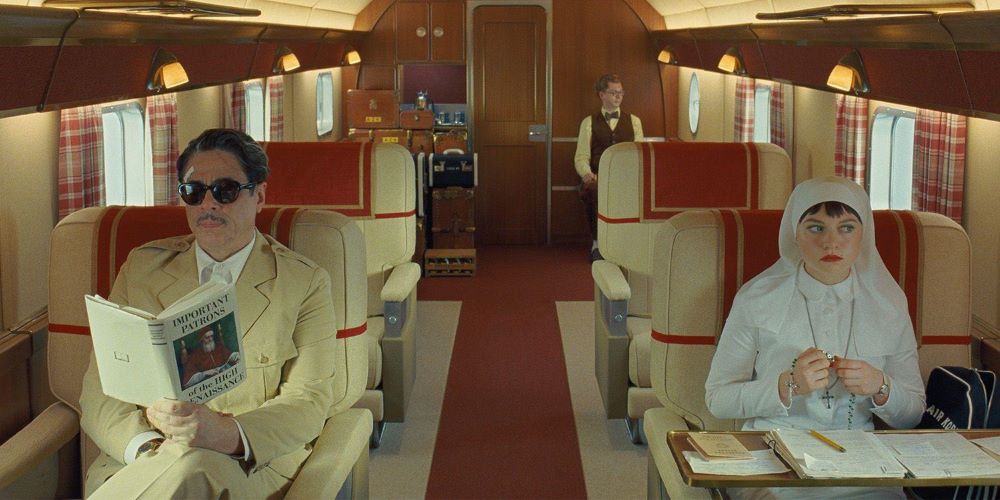
Benicio del Toro plays businessman Zsa-zsa Korda, and Mia Threapleton plays his estranged daughter, a nun named Liesl, in Wes Anderson's "The Phoenician Scheme." (TPS Productions)
"The Phoenician Scheme" might just be Wes Anderson's most spiritual film to date — not because it features a nun as a main character, but because the famed director has transferred his inveterate theological questions about parental legacy, the afterlife and stewardship of influence so nakedly onto the screen.
That's not to say that Anderson's prior films weren't spiritual; "Moonrise Kingdom" (2012) acted as a recapitulation of Noah's biblical story, and "Asteroid City" (2023) ruminated on the disruptive power of wonder to open us up to the divine all around. But in "The Phoenician Scheme," Anderson explores his existential questions with newfound urgency that feels more honest and abraded. It's a memento of the quiet yet profound ways transformation, like leaven to flour or a mustard seed to soil, can take root in our souls; transfiguration is just one near-death experience away.
Benicio del Toro plays businessman Zsa-zsa Korda, whose rule of life is "If something gets in your way, flatten it" and who has just survived his sixth near-death experience — a plane crash. While unconscious, he temporarily enters the afterlife. Afterward, shaken by the experience, he embarks on a journey to save his assets and empire by naming a successor to his largest project yet: the titular Phoenician scheme, a complicated endeavor to improve the structure of the country of Phoenicia with a series of tunnels, trains and dams.
[Wes] Anderson reminds us that one of life's greatest miracles is the ability for the human heart to change.
His brush with death prompts him to reconnect with his estranged daughter, Liesl (Mia Threapleton), a novitiate ready to take her vows as a nun. He hopes that Liesl might be willing to take over his estate, but she is hesitant to do so, given their estrangement and his unethical business practices that she deems "damnable to hell!" Not to be undermined, Zsa-zsa continues forward with his project, which requires him to meet the coterie of investors supporting his venture. Liesl begrudgingly accompanies him, and between business deals, the two begin to mend their relationship.
Every time Zsa-zsa meets with a financier, there is another assassination attempt or threat to his life. Each experience brings him back, briefly, to the afterlife, where he's confronted with his past sins and meets eccentric characters (look no further than Bill Murray as God); ruminations, all, on the clarity on life that proximity to death can provide. Gradually, Zsa-zsa begins to shed the greed and callousness that have guided his life. Under the influence of Liesl, he begins to consider how his tactics have made him a savvy businessman but a cruel person. Perhaps greatness is not worth the cost of goodness.
Advertisement
With "The Phoenician Scheme," Anderson reminds us that one of life's greatest miracles is the ability for the human heart to change. As Zsa-zsa undergoes such a miracle, undoing his own previous exploitative acts proves messy, costly and difficult — but sincere. He realizes that all his money, power and legacy can't make up for the fissure in his relationship with his daughter, and that the time for restoration is limited. When Zsa-zsa questions the efficacy of prayer, Liesl replies, "It's not witchcraft. The phrasing of it … doesn't matter — What matters is the sincerity of your devotion."
It’s this same sincerity that courses with such abundance throughout "The Phoenician Scheme." Through Liesl and Zsa-zsa’s back-and-forth, we're granted insight into Anderson's own struggle with life's impermanence, the limited time for reconciliation and the worthy but achingly slow process of transformation. May we, the viewers, not rob ourselves of the same earnest labor of sanctification.





